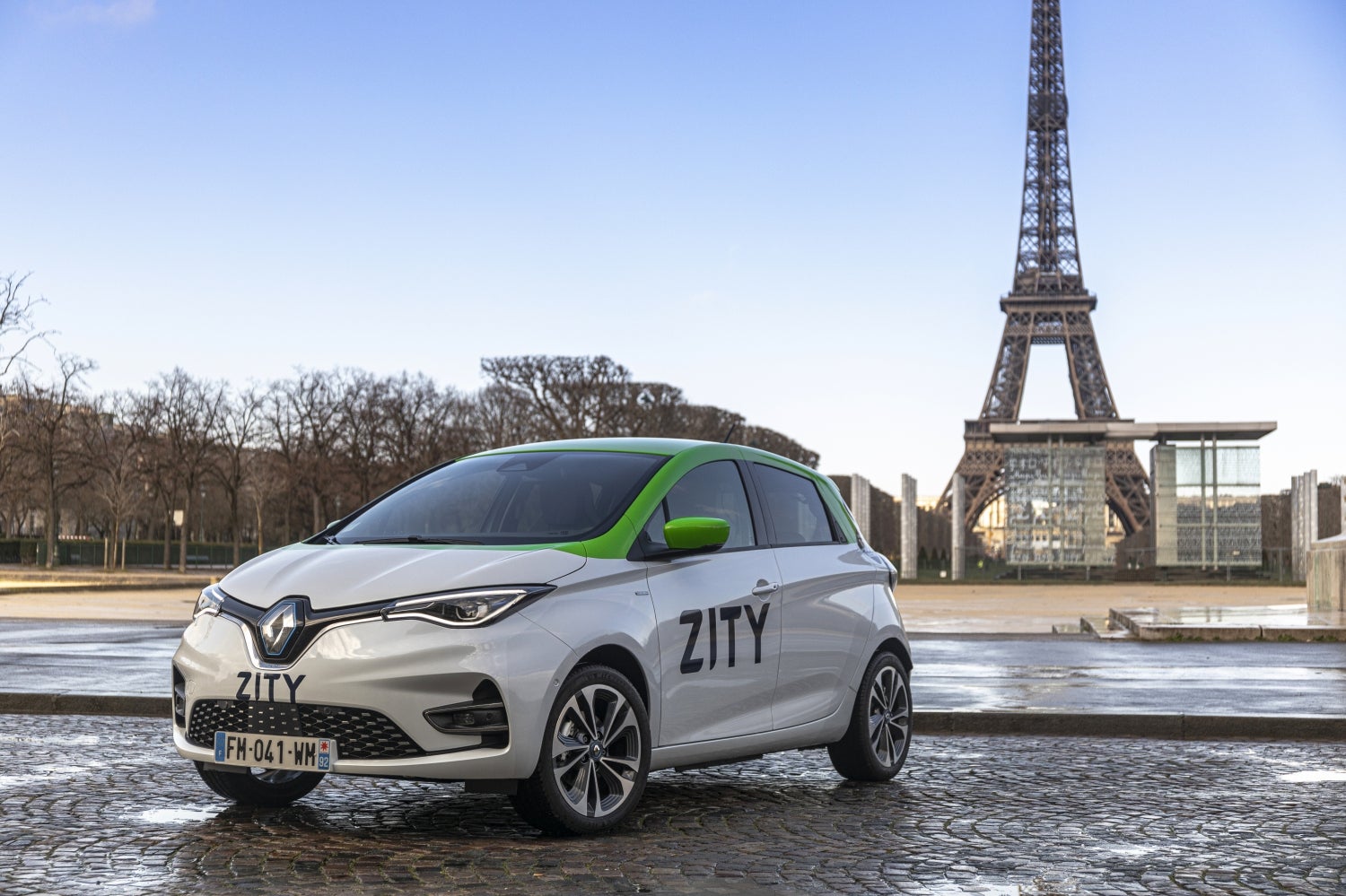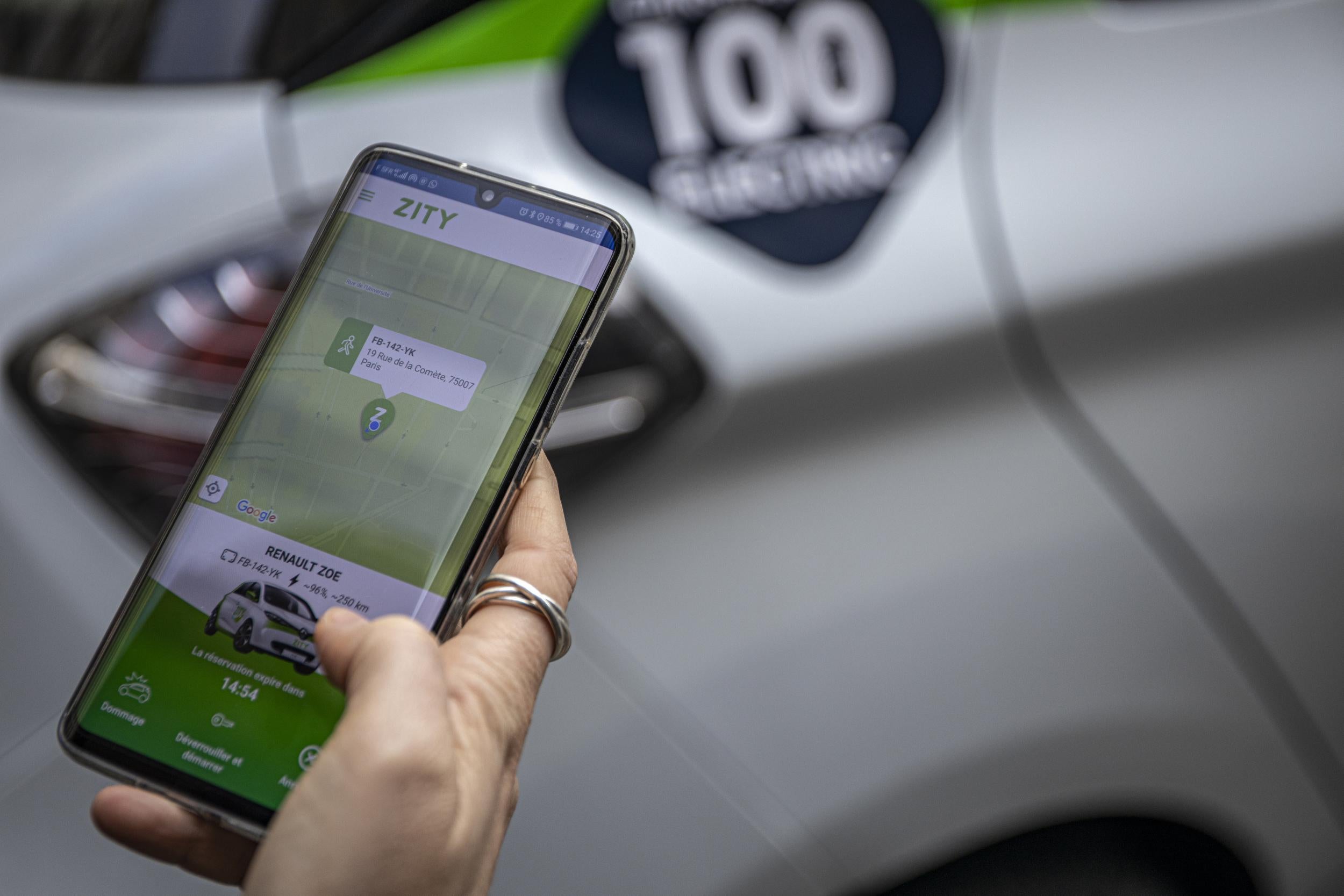Paris car sharing goes electrique with added chic
Zity, a collaboration between Renault and Ferrovial, will see the French capital stocked with 500 all-electric Zoes next month, available for round-the-clock hire. Bravo, says Sean O'Grady

Your support helps us to tell the story
From reproductive rights to climate change to Big Tech, The Independent is on the ground when the story is developing. Whether it's investigating the financials of Elon Musk's pro-Trump PAC or producing our latest documentary, 'The A Word', which shines a light on the American women fighting for reproductive rights, we know how important it is to parse out the facts from the messaging.
At such a critical moment in US history, we need reporters on the ground. Your donation allows us to keep sending journalists to speak to both sides of the story.
The Independent is trusted by Americans across the entire political spectrum. And unlike many other quality news outlets, we choose not to lock Americans out of our reporting and analysis with paywalls. We believe quality journalism should be available to everyone, paid for by those who can afford it.
Your support makes all the difference.In the relentless race between the world’s great cities about who can decarbonise first, Paris is set to accelerate rather briskly away from its rivals. Having beaten London to establish a public cycle sharing scheme back in 2007, for example, Paris is now launching a “free-floating” 100 per cent electric car-sharing service. Bravo!
Next month, 500 all-electric Renault Zoe cars will hit the Parisian streets, widely distributed throughout the city, available for hire 24 hours a day, 7 days a week. The scheme, called Zity, is available on a self-service basis using a free mobile app. It builds on Paris’s unusually high rate for car-sharing of 20 per cent, but challenges remain: a similar scheme in Paris, called Autolib’, closed in 2018, while in London two similar schemes, Bluecity and DriveNow, have recently shut down.
The Zity scheme is a joint venture between Groupe Renault, who, like partner company Nissan has been a pioneer of electric vehicles, and Ferrovial, one of the world’s leading infrastructure operators and urban service providers. In fact, the Paris project follows a previous Renault-Ferrovial partnership in Madrid, which began three years ago.
Zity, says the Renault-Ferrovial partnership “offers flexibility close to that of owning a private vehicle”. In principle, using an app users can view which Renault Zoe is closest to them and reserve the car instantly. When they get to the car, it can be unlocked via the app. To end the rental, the vehicle must be parked in Paris, on any public parking space above ground, and locked. The operation takes a few seconds.

The 500 compact Renault Zoe hatchbacks have five seats and are equipped with a reversing camera and parking sensors, GPS, touch-screen infotainment system and cruise control. Child seats are available in some of the vehicles and those equipped with them can be identified via the mobile application.
Zity clams “competitive” rates that are adapted to needs with no registration or subscription fees. Zity offers a menu of tariffs, including per minute, a fixed time (four, eight or 24 hours), or time credits with “economy packs”. Thanks to the “stand-by” option, Zity also makes it possible to keep the vehicle when you need to park for a short time without incurring extra costs.
The efficiency of the Zity scheme should mean less frequent recharging and therefore more vehicles available on the streets
In terms of the minute-by-minute rate the cost is around 35 cents per minute. However, Zity will also trial flexible pricing, based on supply and demand. Thus, the price per minute will range between 31 cents and 21 cents depending on whether the car is being used in the rush hour or the dead of night.
The battery levels are said to be “guaranteed”. The technology on board the Renault Zoe Zity should enable all the information on the dashboard, including the battery level, to be displayed in real time. The plan is that, if the battery falls below the minimum level required, the vehicle is no longer available for hire and is quickly taken in hand by the Zity teams to recharge it. As well as offering great freedom of movement within and outside the area covered by the service (inner Paris area and Clichy), the efficiency of the Zity scheme should mean less frequent recharging and therefore more vehicles available on the streets.
In addition, “thanks to a highly competitive computer platform and an algorithm that constantly analyses vehicle use”, Zity can identify the areas where the car-sharing demand is highest and can intelligently reposition vehicles in the city after servicing, so that users can easily find a vehicle.
Gilles Normand, senior vice president of electric vehicles & mobility services at Groupe Renault, explains: “The Zity electric car-sharing service in free-floating offer has many advantages, including flexible booking times and the availability of vehicles, in the right place at the right time, thanks to a high-performance application.
“With a cleaner, accessible and sustainable mobility offer, Zity also provides a response to the needs of cities to reduce CO2 emissions and to combat pollution.”
Ignacio Madridejos, CEO of Ferrovial, adds: “This strategic partnership with Renault is the evolution of Zity’s success in Madrid. We are pleased to continue our collaboration bringing the experience and technology developed. It has been key for the user’s acceptance.
“Providing sustainable mobility solutions to citizens is a priority in the battle against climate change challenges.”
Paris aims to ban all internal combustion-engine cars – ie, diesel and petrol – by 2030.
Join our commenting forum
Join thought-provoking conversations, follow other Independent readers and see their replies
Comments